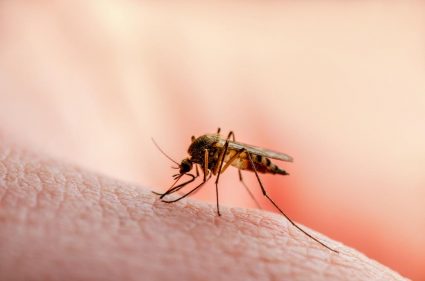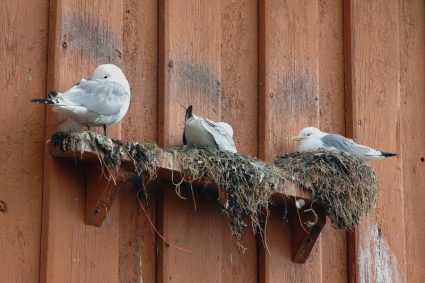
Mourning doves, known for their soft cooing sounds, are a common sight in many parts of North America. While they can be a welcome addition to your backyard scenery, they can also cause problems due to their nesting habits, potential property damage, and aggressive behavior. If you’re looking to deter these birds from your property, you’re in the right place. This comprehensive guide will provide you with effective, humane strategies on how to keep mourning doves away.
To keep mourning doves away, use humane methods such as modifying bird feeders, installing physical barriers like bird spikes or netting, using visual and auditory deterrents, and applying bird-repelling sprays or gels. Make your yard less attractive by removing food sources that attract mourning doves, cleaning up debris, using scare tactics, and modifying the habitat. Always remember to use methods that do not harm the birds, their nests, or their eggs.
Reasons to Keep Mourning Doves Away
Before we delve into the methods, let’s understand why some people might want to discourage mourning doves from their property:
- Dominating bird feeders: Mourning doves can empty bird feeders quickly, discouraging smaller birds from accessing the feeders.
- Aggressive behavior: They can sometimes exhibit aggressive behavior, causing issues with other bird species.
- Attracting predators: Their ground-feeding habits can attract predators such as cats, hawks, and raccoons.
- Property damage: Their droppings can vandalize valuable equipment, vehicles, and walkways.
Understanding Mourning Dove Behavior
Mourning doves are adaptable and can thrive in urban and suburban environments. However, their presence can lead to inadvertent window collisions due to their wariness around humans. They often build nests in unusual places, causing potential damage to gutters, ventilation systems, and more. Their potential to spread diseases, such as Trichomoniasis, is another concern.
Legal Implications
Remember, mourning doves are protected under the Migratory Bird Treaty Act (MBTA) of 1918, which makes it illegal to harm these birds, their nests, or eggs. So, any method employed to deter these birds must be humane and non-lethal.
Humane Methods to Keep Mourning Doves Away
Here are some proven, humane methods to discourage mourning doves from your property:
- Modify bird feeders: Use caged bird feeders or tube feeders with small perches that are difficult for mourning doves to land on.
- Physical barriers: Install bird spikes or netting to prevent doves from landing on your property.
- Visual deterrents: Use reflective objects, predator decoys, or bird balloons to scare the doves.
- Auditory deterrents: Install devices that play recordings of hawk calls or alarms to scare doves away.
- Bird-repelling sprays or gels: Apply these products on surfaces where doves tend to perch to deter them.
- Smell deterrents: Essential oils like peppermint, as well as peppers, garlic, and cinnamon can deter doves.
Making Your Yard Less Attractive to Mourning Doves
Another effective approach is to make your yard less appealing to mourning doves. Here’s how:
- Remove food sources: Avoid using seeds that attract mourning doves, such as millet, safflower seeds, and cracked corn.
- Change bird feeder types: Use vertical tube feeders that mourning doves find difficult to land on.
- Clean up your yard: Pick up loose twigs, dried leaves, and other debris that birds can use to make their nests.
- Use scare tactics: Hang shiny objects that catch the wind, such as reflective tape or pinwheels, to keep the doves away.
- Modify the habitat: Use gravel or mulch to discourage doves from foraging.
Products to Deter Mourning Doves
There are several products on the market designed to keep mourning doves away. These include bird spikes, sonic repellent devices, ultrasonic repellers, wind chimes, reflective tape, bird netting, bird deterrent gels, and visual deterrents like predator decoys or shiny objects.
Success Stories
Many homeowners have successfully deterred mourning doves from their properties. For instance, a homeowner in Rancho Santa Margarita, California, used a sonic bird repeller to keep crows away from doves nesting on their patio. The device effectively kept the crows away while allowing the doves to continue nesting peacefully.
Penalties for Harming Mourning Doves
In protected areas, harming a mourning dove can result in penalties including fines and imprisonment, depending on the specific laws of the jurisdiction. Always check with your local state wildlife agency to determine the specific regulations for your area.
Conclusion
Keeping mourning doves away from your property can be a challenging task, but with the right techniques and tools, it is certainly achievable. Remember to always use humane methods that do not harm the birds, their nests, or their eggs. With a bit of patience and consistency, you can effectively manage the presence of mourning doves in your surroundings.
Frequently Asked Questions
What kind of diseases can mourning doves spread?
Mourning doves can potentially spread diseases such as Trichomoniasis, Avian Pox, and Salmonellosis. These diseases can affect other bird species and, in rare cases, can also affect humans and pets.
Can I use any kind of essential oil as a smell deterrent for mourning doves?
Not all essential oils work as a deterrent. The most effective ones are peppermint, eucalyptus, and citronella. Always dilute essential oils before use and avoid spraying them directly on birds or other animals.
Are there any plants that deter mourning doves?
Plants that have strong scents, such as mint, lavender, and marigold, can deter mourning doves. Also, plants that produce berries or seeds that mourning doves don’t like can make your garden less attractive to them.
Can I use a pet cat or dog to scare away mourning doves?
While pets might scare away mourning doves temporarily, they are not a recommended solution. Pets can harm the birds, which is illegal under the Migratory Bird Treaty Act. Moreover, mourning doves might carry diseases that can affect pets.
How long does it take for mourning doves to leave once deterrents are in place?
The time it takes for mourning doves to leave once deterrents are in place can vary. Some birds may leave immediately, while others may take a few days or weeks. Consistency is key when using deterrents.











